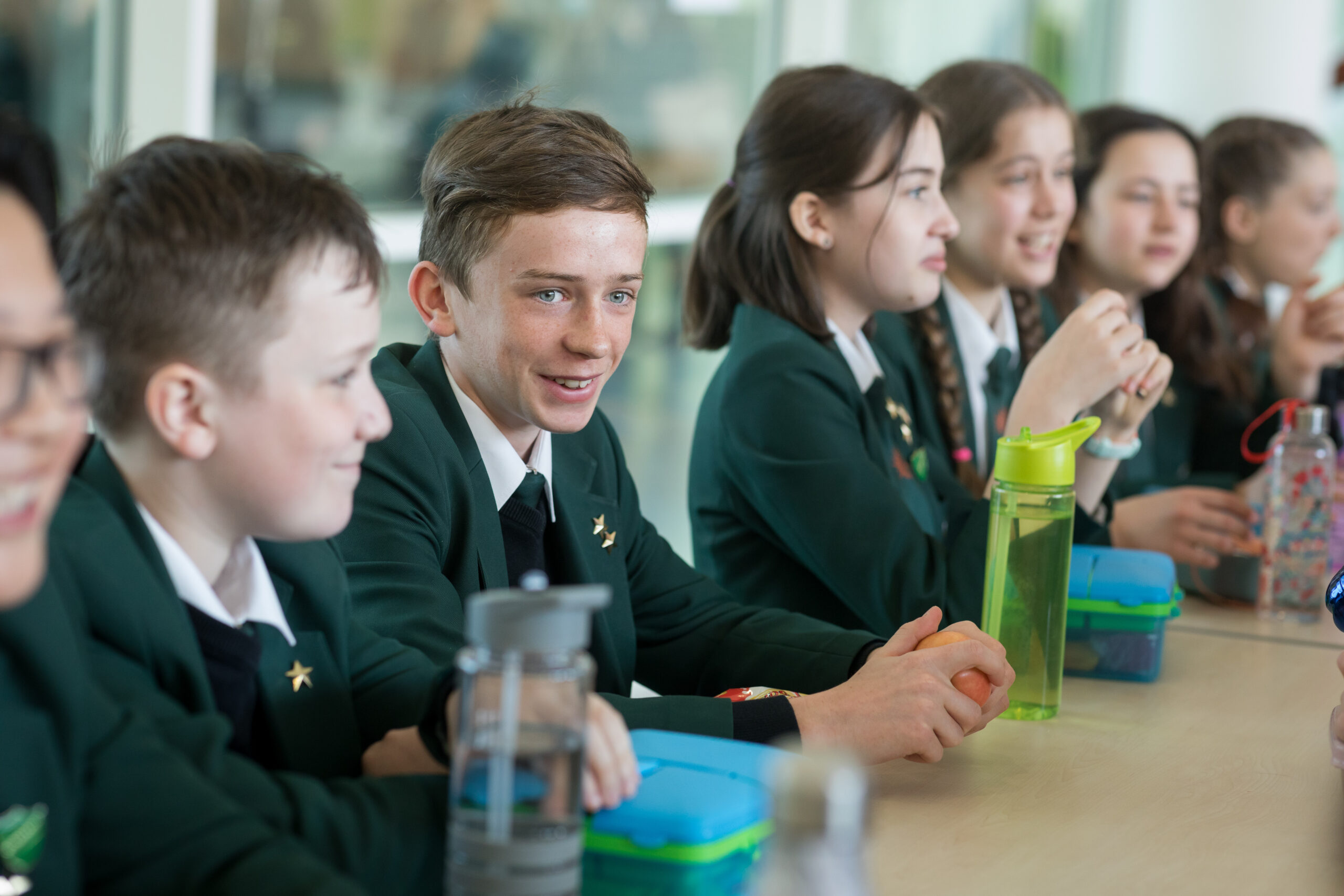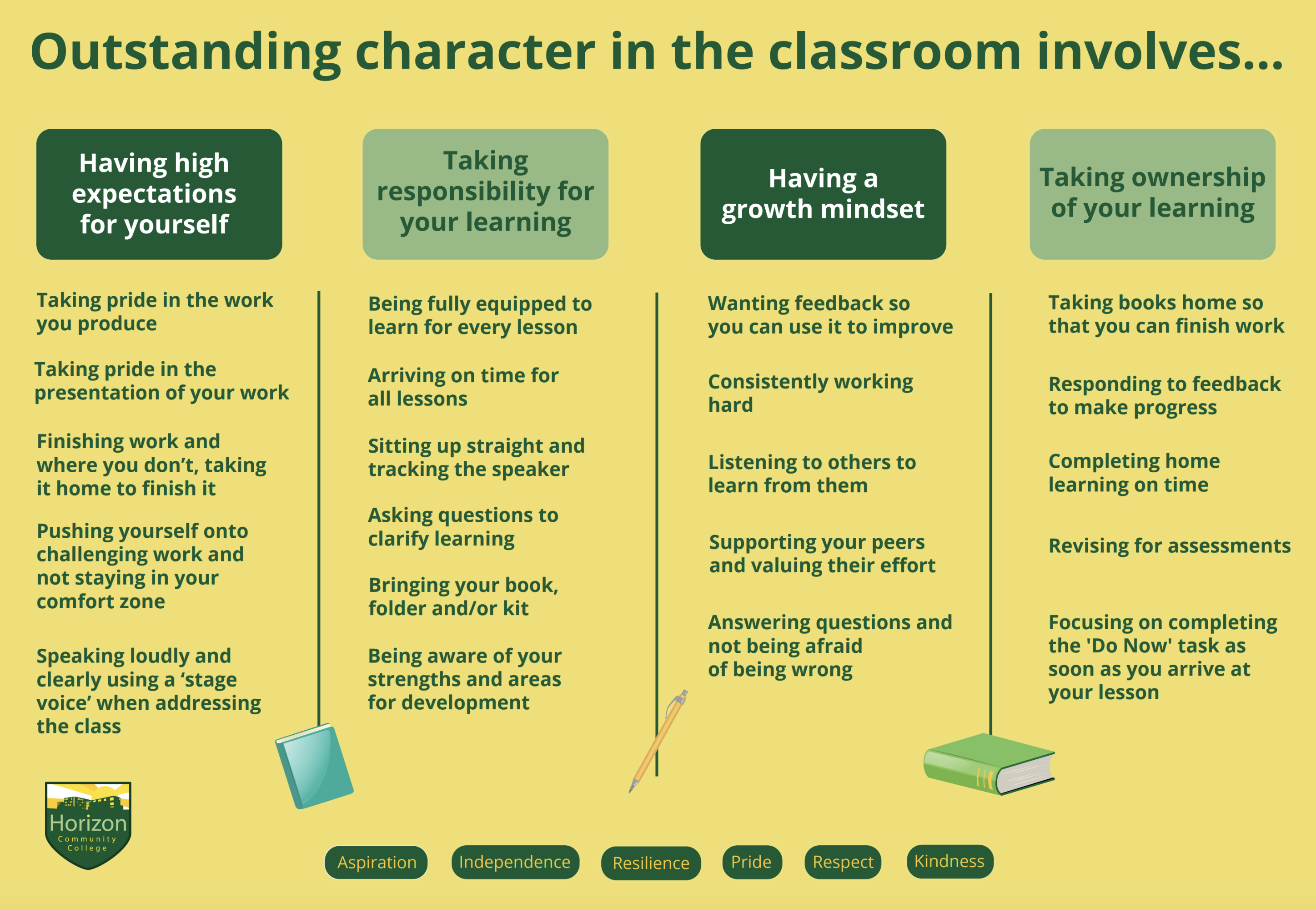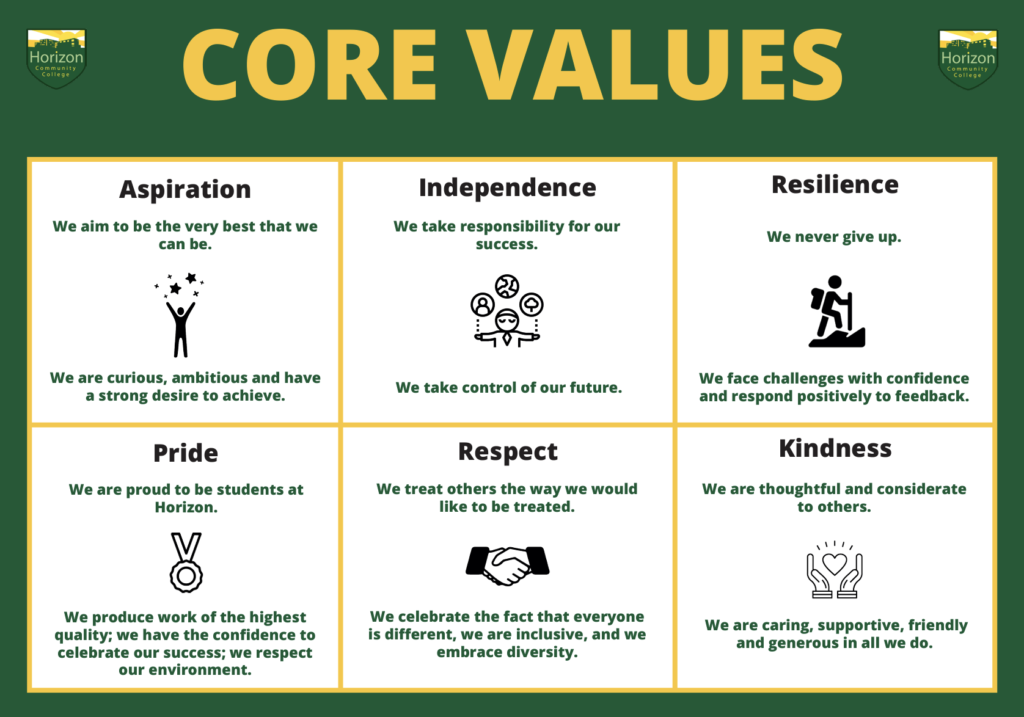Developing Positive Role Models
Behaviour & Attitudes

We have the highest expectations of all our students, we expect them to be ‘ready to learn’ and to become ‘positive role models’ who display our Core Values in their everyday behaviours. We have five school teams within the College, each responsible for a year group. These teams provide quality support for the students in their care and ensure they both feel safe and are safe. Collectively they drive our expectations for student behaviour and attitudes across college, which include correct uniform, positive conduct, excellent attendance and punctuality and readiness to learn.
The College works in partnership with Parents and Carers to promote positive discipline and encourage students to make the right choices. Parental involvement and interest is actively encouraged through communication. (Parentmail, telephone calls, parental meetings and annual Parent Evenings).
We believe raising standards is the collective responsibility of all staff and students at College. Students will be encouraged to uphold high standards and help create a sense of community throughout the school. Staff will consistently seek to adopt a positive approach to student discipline in ensuring a safe and secure environment in which learning can flourish and prosper.
Praise & Rewards

We believe in rewarding effort, recognising achievement and encouraging students to exceed our expectations. We use an extensive range of rewards to acknowledge this.
Behaviour for Learning Policy
College Behaviour for Learning Policy
Character in the Classroom
Students are encouraged to reflect and develop their ‘character within the classroom’. This involves students taking ownership and responsibility of their learning, having high expectations of themselves and developing a positive, growth mindset. Each classroom across the College displays a poster with the important characters and qualities that we feel students should aim to demonstrate at every opportunity. All staff are encouraged to promote ‘character in the classroom’ which in turn supports our ethos of students becoming a ‘positive role model’.

Non-Negotiable Expectations
We expect all students to follow our non- negotiable expectations.
Non - Negotiable Expectations
-
Arrive to lessons on time.
-
Speak respectfully to staff and other students at all times
-
Take responsibility for your own behaviour and attitude to learning.
-
Be ready to learn with all required equipment.
-
Take pride and care to complete all tasks to the best of your ability (including home learning).
-
Keep unnecessary, personal equipment away eg. Mobile phones, ear phones, smart watch, gadgets etc.
Core Values
Horizon Core values are promoted through lessons, form period, assemblies, displays, college website and parents evening. There is a College wide monthly focus which is shared with all staff and students.

Uniform POLICY

Pre-loved Uniform
To support with the ‘cost of living’ we run a pre-loved uniform shop. The shop provides the full college uniform, PE kit and Dance kit. For further information please e-mail us at info@horizoncc.co.uk.
EXPECTATIONS
All students are representing the college as soon as they are wearing the College uniform. We expect students to wear their uniform with pride at all times, from when they leave home to arrive at College and until they return home in the evening.
Supplier
Our approved uniform supplier is Vortex schoolwear. The following items should be bought from Vortex:
- The college blazer
- The college tie
- The college skirt
- The college PE polo shirt
The web address for online ordering Horizon approved uniform is: https://www.vortexschoolwear.co.uk/Secondary-Schools/Horizon-Community-College/
The following items can be purchased more widely, and do not need to be branded:
- The white collared shirt
- Black trousers (please see page 4 of the uniform requirements for approved fit).
- Black school shoes (please see page 5 for approved styles).
- For PE lessons – A choice of either black leggings, black tracksuit bottoms or black shorts. (Trainers for PE can be any colour and do not need to be branded).
Detailed information on uniform expectations can be found in the booklet below. Please read and get in touch with School teams if you have any questions.
Restorative Practice

Restorative Practice
Horizon Community College is a restorative School. We take a restorative approach to resolving conflict.
Restorative practice is a term used to describe behaviours, interactions and approaches which help to build and maintain positive, healthy relationships, resolve difficulties and repair harm where there has been conflict.
This approach enables those who have been harmed to convey the impact of the harm to those responsible, and for those responsible to acknowledge this impact and take steps to put it right.
Restorative Practice rests in the belief that people will make positive changes when those in positions of authority do things WITH them rather than TO them or FOR them. Building positive relationships are key to this being successful.
Restorative conversations aim to repair relationships when things go wrong.
Restorative Conversations
If a student should reach a C3 as part of the consequence system, they are encouraged to engage in a restorative conversation with their teacher, or any other affected parties at the end of the lesson. The aim of the restorative conversation is to repair relationships, ensuring a purposeful, successful, and happy learning environment for all.
Some of the questions that are asked in a restorative conversation:
- What happened?
- Who has been affected and how?
- What needs to happen, moving forward, to put things right?
All teachers have completed training on restorative practice and the Pastoral teams have completed further training through Mark Finnis.
If you have a calm, orderly school, then teachers can teach and students can learn. Everyone succeeds. Staff and student welfare and happiness grows. Relationships flourish.
Sam Strickland